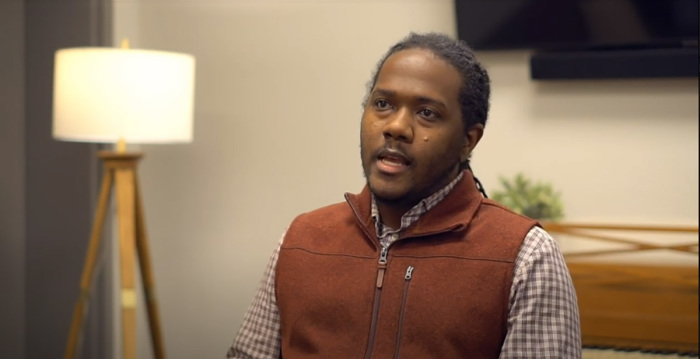Evangelical Covenant Church leader on race, privilege through biblical lens and the Church's response

Many people scatter and run when the topic of race and privilege enters the conversation. But for Dominque Gilliard, author of the new book Subversive Witness, it’s the complete opposite.
Gilliard believes now is the right moment to discuss issues surrounding race — not from secular society’s point of view, but through a biblical lens.
When asked about his calling and mission in life during a sit-down interview with The Christian Post, Gilliard, who serves as the director of Racial Righteousness and Reconciliation for the Love Mercy Do Justice initiative of the Evangelical Covenant Church, lit up.
“I’m a pastor to pastors, and I help pastors make connections between discipleship, biblical justice and Scripture’s commission to be ambassadors of reconciliation,” he said.
Gilliard strongly believes that Christians have been called to carry the light and live out the Gospel in discussing and engaging racial issues. Discussing why he felt compelled to write about race, and particularly how believers should define what it means to have privilege by looking at historical biblical accounts as a guide to reflect on the many forms privilege takes in societies worldwide, he was clear and to the point.
“First, let me say what I’m not saying when I use the language of privilege,” he told CP. “It’s not about condemnation. It’s not about shaming one another into coerced actions. It’s not about saying that a person is beyond redemption or evil because they possess privilege.”
Gilliard said he felt compelled to write the book “because doing the work — inside the denomination and outside of it — I realized when the conversation of privilege came up within congregations, there were predominantly three responses.”
“The first of which was there would be a denial that privilege is real and a renunciation of the conversation as being unbiblical,” he said. “The second response would be where there would be ministers who pretty much gave a nod and knew that privilege was real, but they also understood that it was very tricky terrain to try to navigate. And so, instead of trying to navigate the complex terrain and potentially losing people and funding, they decided to just sidestep the conversation. And then the third response would be where pastors and congregants both knew that privilege was really affirmed.”
Gilliard believes that the Body of Christ should be challenged and open-minded no matter where they find themselves in navigating race and the choices they make at times in life when they have more power and privilege and times when they don’t. The biblical account of Joseph, he said, is an example of someone who lost all privilege when his brothers sold him into slavery and then later used his power of privilege for good instead of revenge when he became the second-most powerful man in Egypt.
Having conversations on race and privilege can be challenging, which is why Gilliard said he’s hopeful that his new book will help people to navigate the opportunities that Christ has placed in front them as ambassadors of the Gospel.
“I think about us having a sober analysis of privilege as an invitation to discern how we can collaborate with God in the work of reconciling all things to God through Christ as the hands and feet of Christ in the world today,” he added.





























